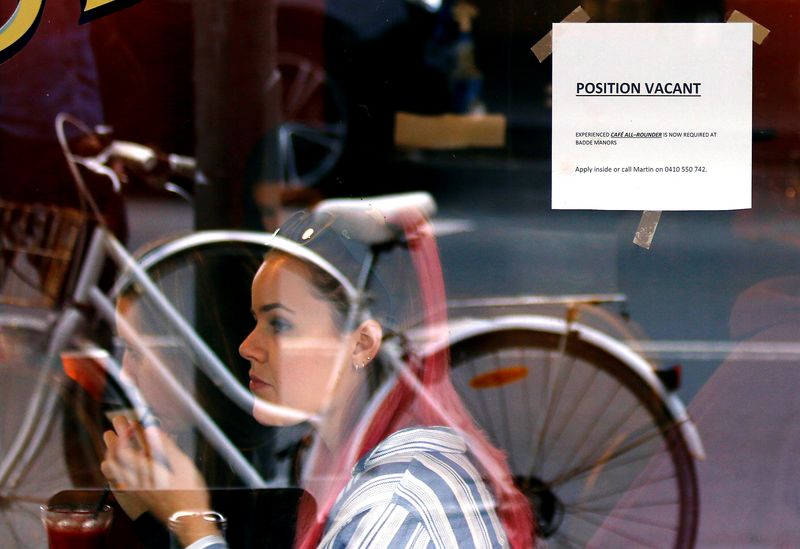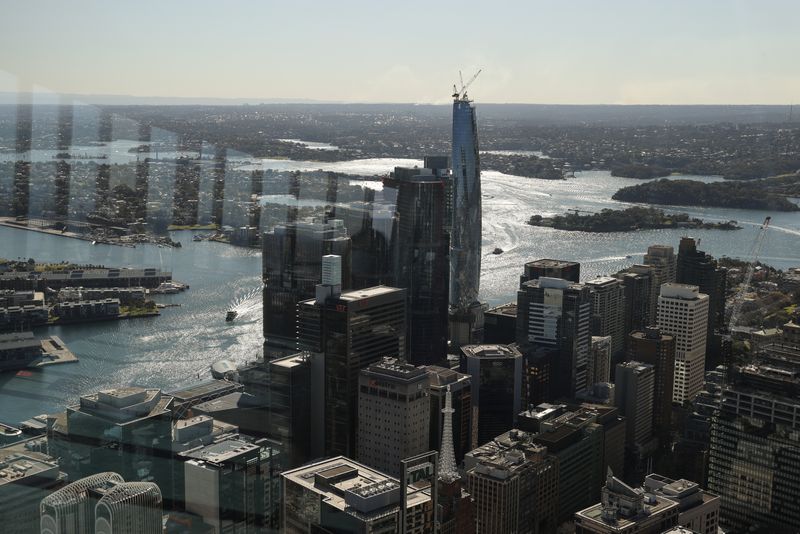By Renju Jose
SYDNEY (Reuters) -Australia is set to raise the national minimum wage by the most in 16 years as families struggle with soaring living costs, a bold decision that also risks further stoking inflation.
Inflation is already problem enough, with the head of the country's central bank taking the highly unusual step of going on television to warn that interest rates would have to rise a lot more to curb the upward march in prices.
Consumer confidence has already sunk to depths typically associated with recessions and inflation was not expected to slow until next year, heralding a tough few months ahead.
"The lift in interest rates comes at a time when soaring inflation is eating into worker pay packets," said Ryan Felsman, a senior economist at CommSec.
"The cost of just about everything is rising, including staples such as food, and the necessities of electricity, gas and petrol."
From a pay-packet point of view it was thus a relief when Australia's Fair Work Commission on Wednesday lifted the mininum wage by 5.2%, double last year's award.
The lowest-paid employees will receive A$21.38 ($14.74) an hour from July 1, up from the current rate of A$20.33, a decision which will affect more than 2 million workers.
"The low-paid are particularly vulnerable in the context of rising inflation," said Justice Iain Ross, president of the Fair Work Commission.
With the unemployment rate at 3.9%, the lowest in almost 50 years, Ross said the decision "will not have a significant adverse effect on the performance and competitiveness of the national economy."
The Australian Chamber of Commerce and Industry (ACCI) was not so sanguine, saying the decision would add about A$8 billion in expenses for businesses over the year.
Prime Minister Anthony Albanese, in power for a less than a month, said he "absolutely welcomes" the hike, which equates to A$40 more a week for a full-time worker.
"Many of those people who are on minimum wage are the heroes who saw us through the (COVID-19) pandemic. These workers deserve more than our thanks, they deserve a pay rise, and today they have got it," Albanese said during a media briefing.
The new centre-left Labor government backed an inflation-matching 5.1% rise in minimum wages during its election campaign.
Yet inflation has not stood still with Reserve Bank of Australia (RBA) Governor Philip Lowe warning it will likely accelerate to 7% by the end of the year, heights not witnessed since 1990.
As a result, policy needed to respond decisively which was why the RBA hiked rates by an outsized 50 basis points this month to 0.85%, and why they might have to reach 2.5% in time.
Goldman Sachs (NYSE:GS) economist Andrew Boak warned the lift in the minimum wage meant there was a "material risk" the RBA could choose to hike by 75 basis points in July and/or August.

Financial markets are wagering rates could reach 3.75% by Christmas, and peak somewhere above 4%.
($1 = 1.4514 Australian dollars)
